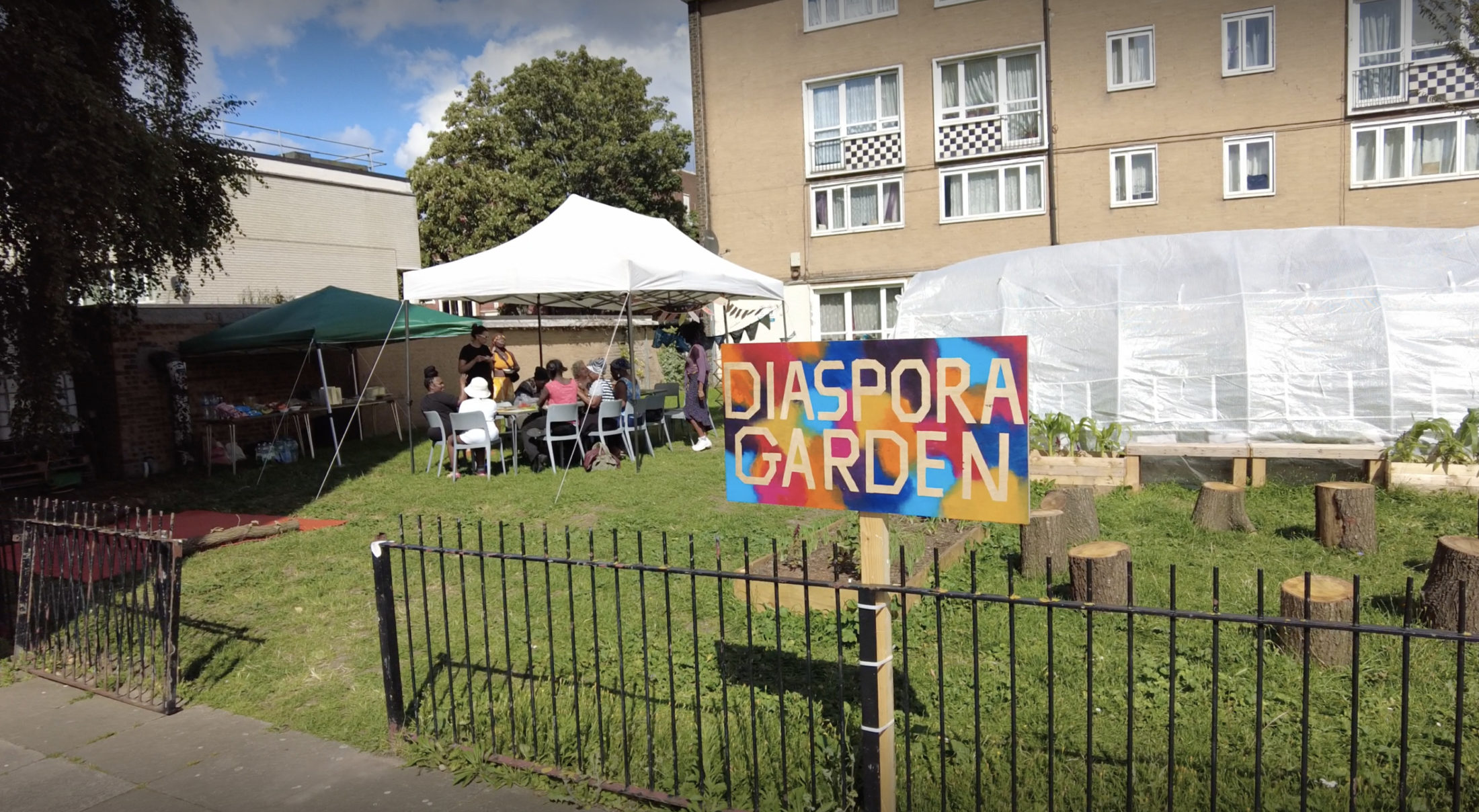
The Diaspora Garden was a temporary community garden developed by artist Seyi Adelekun. The garden was built on the green space beside Pelican Estate in Camberwell and it was open to all residents of the estate. Adelekun and the residents worked together to grow a wide range of vegetables and plants from around the world. Weekly workshops, which ran from July to August 2023, explored herbalism, mental health and storytelling through foraging, movement and fun botanical crafts.
These diary entries capture the workshops and changes seen in the garden throughout the summer. Have a read about what we’ve been up to!
Fabrice Boltho: Planting + Painting
The project kicked off with a planting workshop by Fabrice Boltho who grew all the plants with Doris Owuasoanya at Myatt’s Fields community green house, a volunteer-run park in Camberwell. The seeds were generously donated to the project. The plants were a mixture of vegetables native to west Africa and alternatives that are more suited to a UK climate. The seedlings included spring onions, shallots, chillies, tomatoes, chard, cucumbers, sweet potato leaves, sweetcorn, malbar spinach, black eyed peas, callaloo, mallow, lablab beans, water leaf, Nigerian basil and garden eggs.
Fabrice advised on planting and ongoing care and taught us to identify the different plants.
We also painted images of flowers, leaves and the names of the plants on wooden signs which residents hung in the polytunnel.
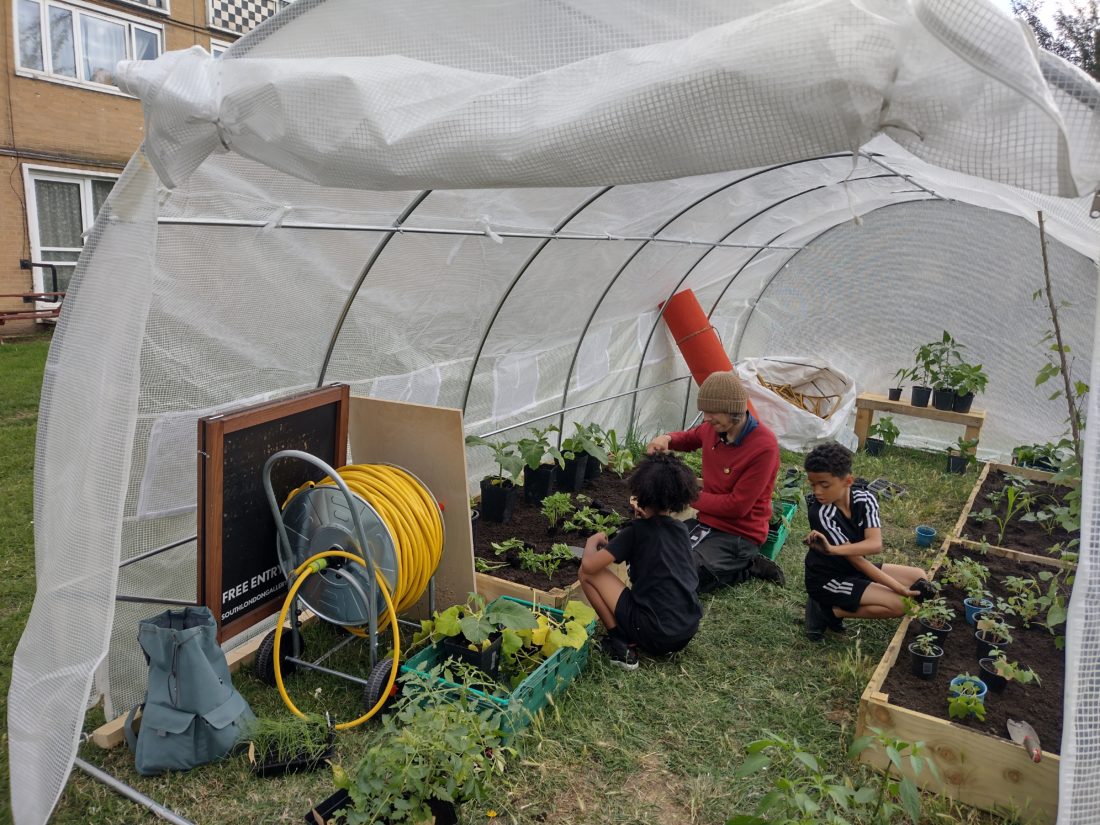
Dré Ferdinand: Ways Of Observing + PlantWave
The second workshop was facilitated by Dré Ferdinand, a licensed social worker, multi-disciplinary artist and wellness practitioner whose work focuses on art and healing. Dré weaves together different practices, including Yoga, Reiki, sound baths, horticulture and EMDR, a mental health treatment technique, to support people and promote collective care.
To start off Dré guided us with breathwork exercises including box breathing where you breath in for four counts, hold your breath for four, breath-out for four, hold for four and repeat. Once relaxed, participates explored body movements by mimicking how their favourite plants grow or move in the wind.
She then used PlantWave equipment to turn a plant’s biorhythms into music. The machine detects slight electrical variations in a plant via electrodes placed on the leaves. These variations are graphed as a wave, which is translated into pitch messages that play musical instruments.
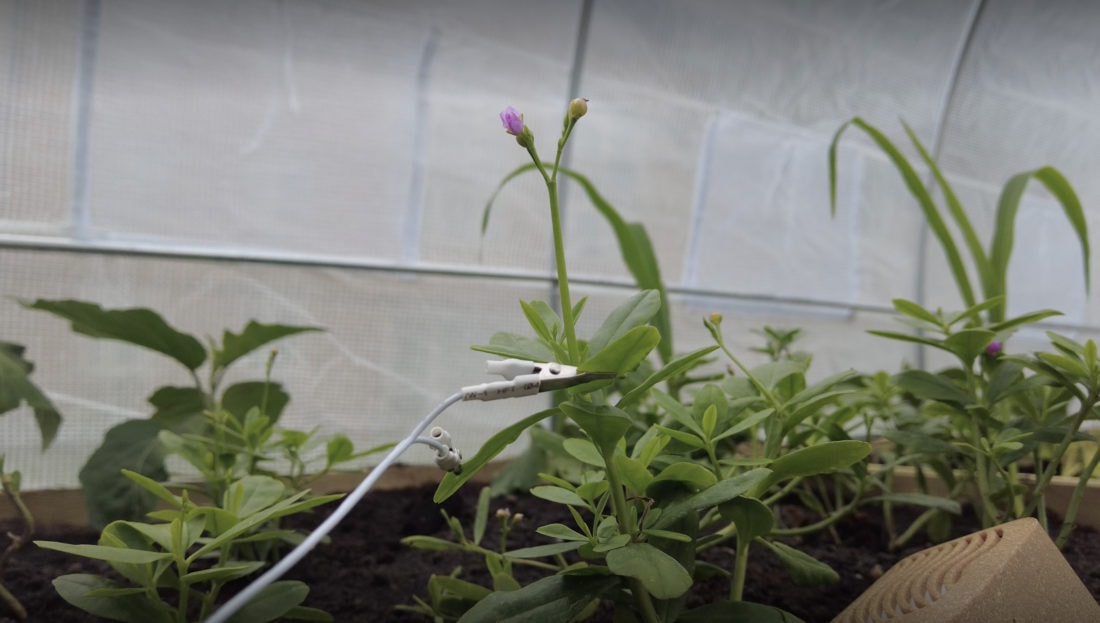
Seyi Adelekun: Nature Weaving
To continue decorating the garden, Seyi organised a session teaching attendees how to weave with plants. After collecting a selection of plants from Burgess Park, Seyi set up a loom using multi-coloured yarn. Residents slotted in the flowers to create a wildflower tapestry which was hung from the ceiling of the polytunnel.
We also planted the final seedlings outside and children did plenty of watering, painting and decorating of the raised beds.
One of the residents said: “I haven’t seen cucumbers growing since I was a little girl. They grew all over the hill next to my house. Its reminding me of my childhood.”
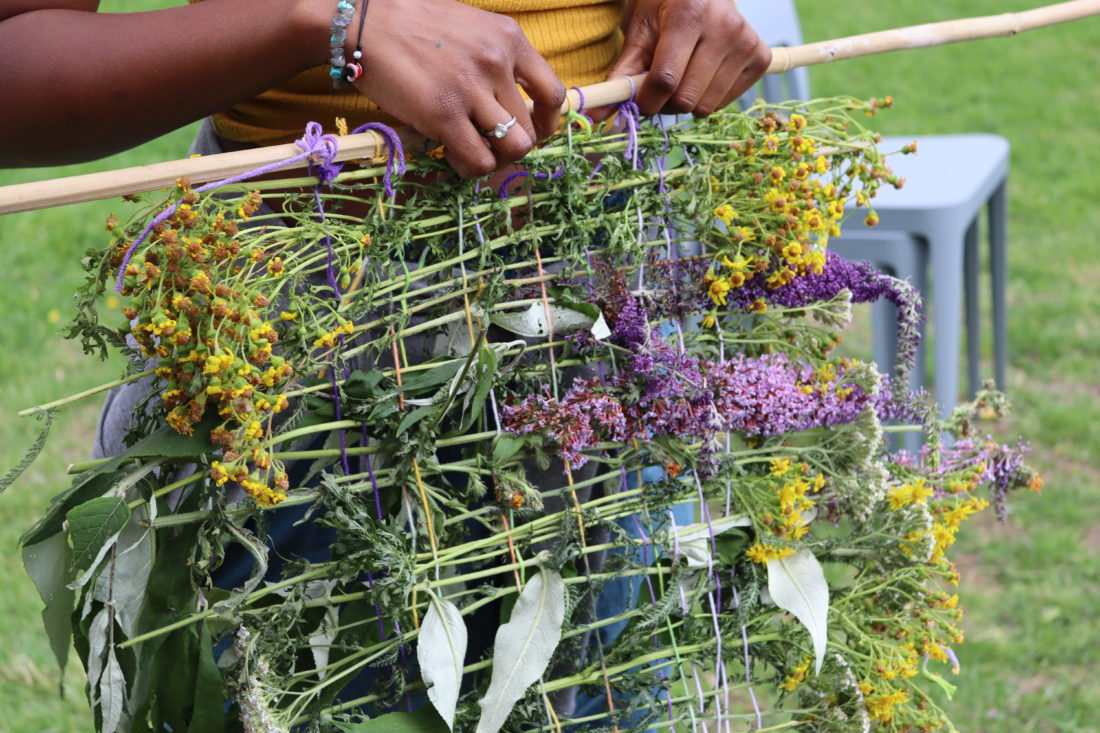
Mama D Ujuaje: Dream Workshop
The next workshop was devised by researcher and healing facilitator Mama D Ujuaje, the Co-Founder of Community Centred Knowledge. Mama D’s practices include herbalism, aromatherapy, food, meditation and dream exploration. The session started with music and essential oils of rosemary, frankincense, bergamot and lavender to awaken our senses.
Mama D guided the group through a mindful world and dream building exercise. We sat in a circle on tree stumps and sculpted with modelling clay, making little worlds imprinted with flowers, while speaking to the models like they were ourselves. We also spoke to trees.
We watered, painted the raised plant beds made signs for the water tank and polytunnel.
We also spotted our first cucumber growing!
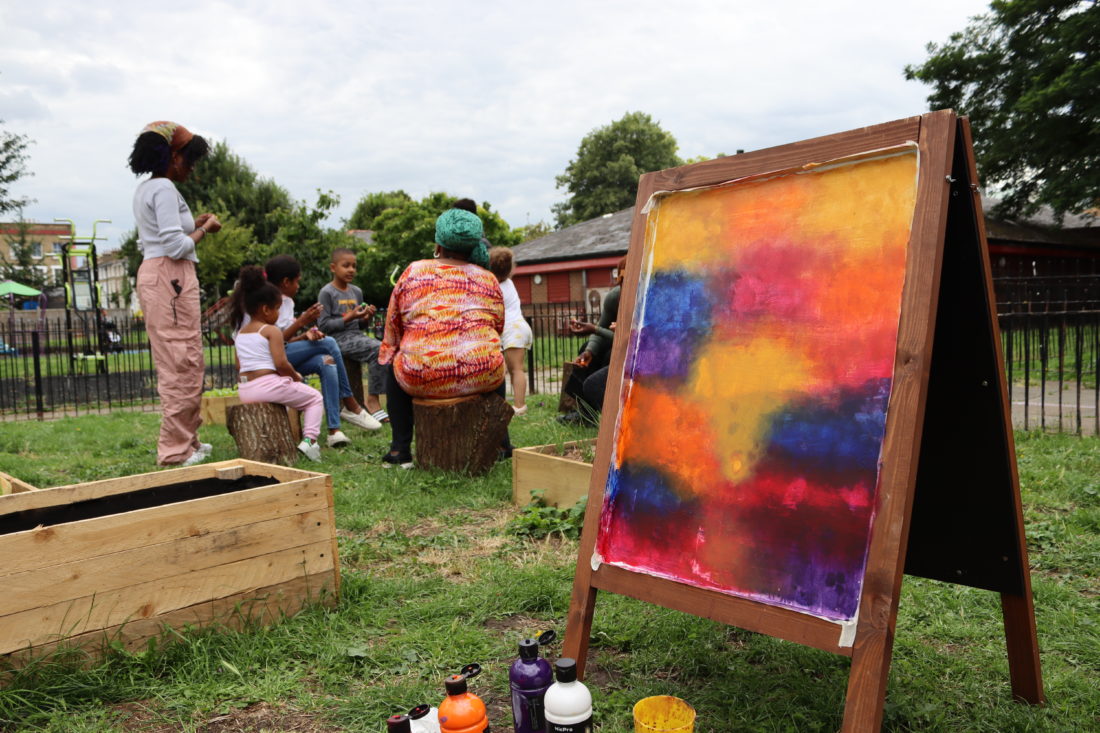
Alexandra Yellop: Healing Balms
Our fifth workshop was delivered by Ali Yellop an educator, horticulturist, cultural programmer & community grower. Ali is drawn to this type of work as a means of empowering communities to create deeper connections with land.
She made healing balms, both topical warming skin balms and lip balms and herbal teas. Almond and beeswax oils were melted with a small gas stove and poured into small round mental tins which each visitor could take home.
Her medicinal rub is used for sore joints, inflammation, discomfort in the body. Ingredients included nettle seed, rosemary, comfrey infused in grapeseed oil and beeswax, with ginger & wintergreen essential oils. The herbal tea was her own blend of nettle and comfrey which treats joint pains due to nettle’s anti-inflammatory properties
It was our only rainy day but everyone sheltered under our gazebo and kept warm with the delicious herbal teas.
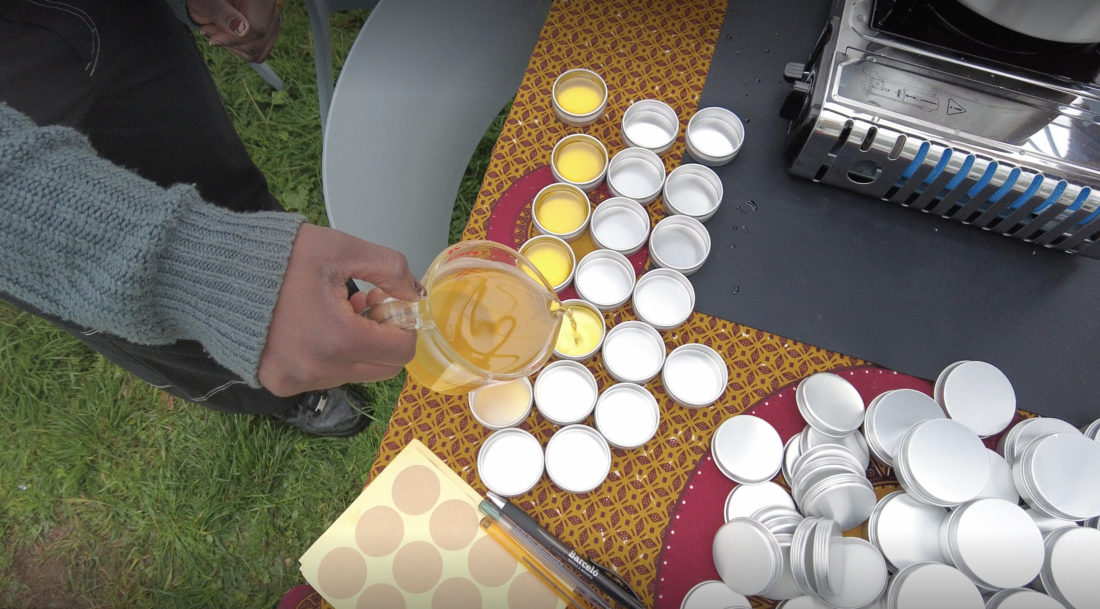
South London Gallery: Lino printing
To get to know the growing plants better, the South London Gallery team invited residents to look closely at leaves and flowers with magnifying glasses and discover the patterns and colours up close. Using these discoveries as inspiration, participants carved lino blocks to create beautiful designs which were printed onto tote bags.
Once the prints dried in the sun, everyone took home their personal bags. The designs carved were cucumbers, scotch bonnet chillies, a happy birthday message, a bingo card and cucumber and bean flowers.
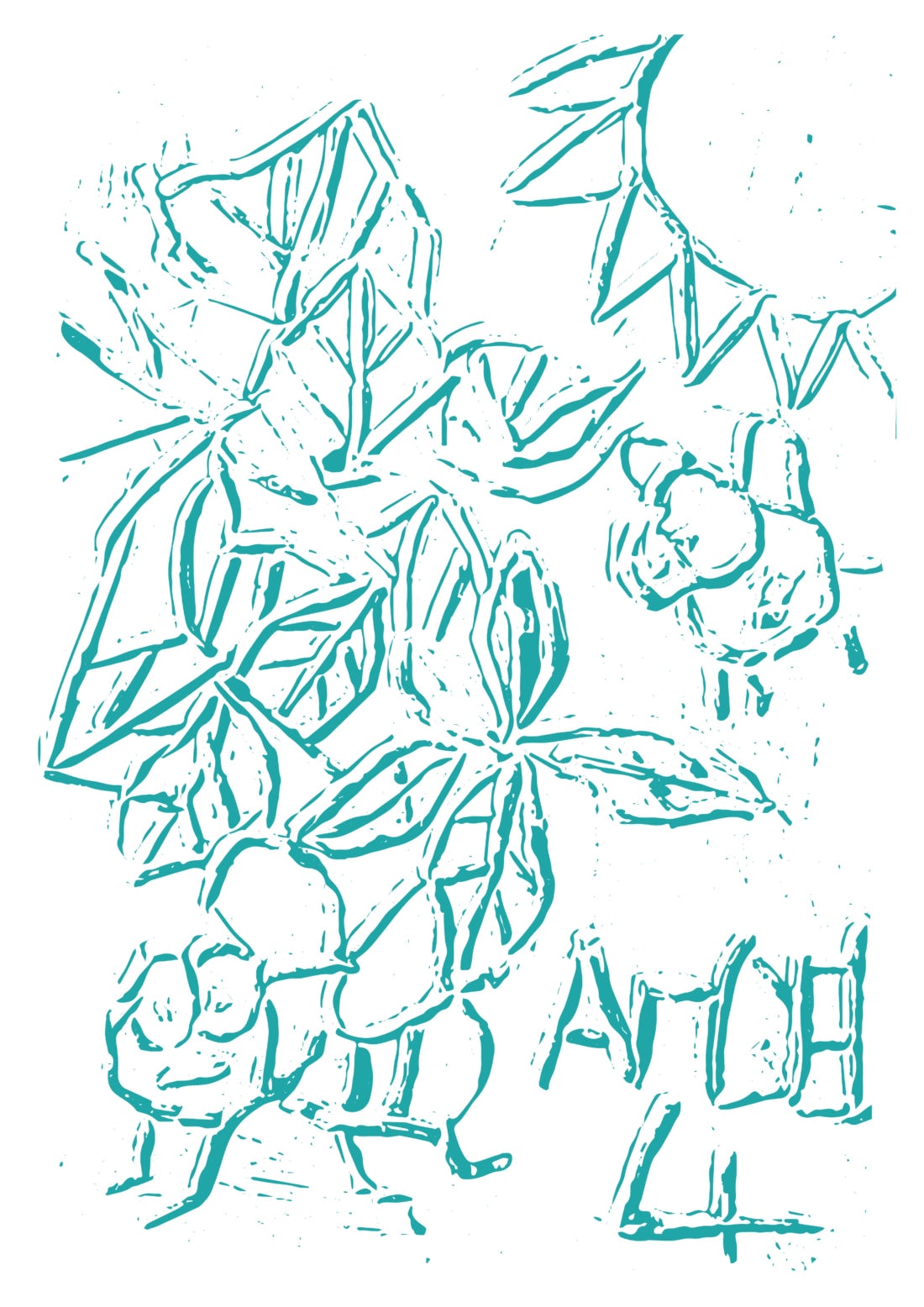
Bekah Earthchild: Tea Tasting and Sound Bath
Bekah Earthchild hosts meditative workshops based around herbal medicine and urban foraging. She specialises in creating spaces for those from the global majority to access plant healing, collective liberation and soul wellness. For this workshop, Bekah hosted a herbal tea making session combined with a healing sound event.
She started with teabag making were she bought her own dried herbs to fill the bags with.
She then did a grounding breathwork exercises and finished off the session with a sound bath. A sound bath is a meditative experience where you are bathed in sound waves. She used a singing bowl which is a healing instrument while attendees lay and sat on blankets on the floor.
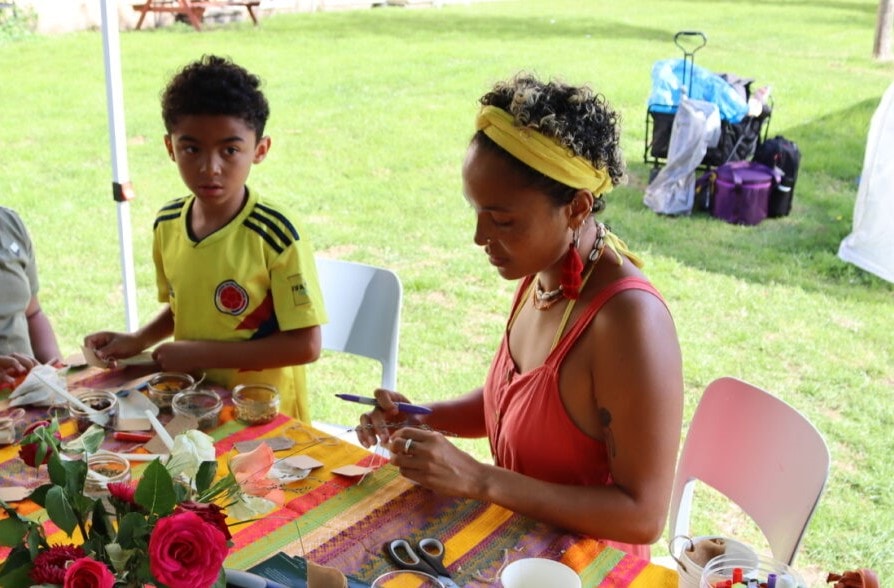
Giselle Richelieu and Idman Abdurahaman: Stories Through Food
Giselle and Idman’s workshops reconnect people to healthy food, land and cultural traditions. They brought food from the diaspora including scotch bonnet, plantain, lychee and mango for a tasting and ‘Where Do You Come From?’ workshop.
Giselle and Idman asked their workshop participants to trace out their hands on colourful paper and answer questions: “What does your name mean? Who gave you that name? And where does it come from?”
They encouraged everyone to paint and draw on a shared sheet of paper, asking them to include flags, favourite foods and items they had ate at the workshop. The final work was a visual story of how food can be connected with identity.
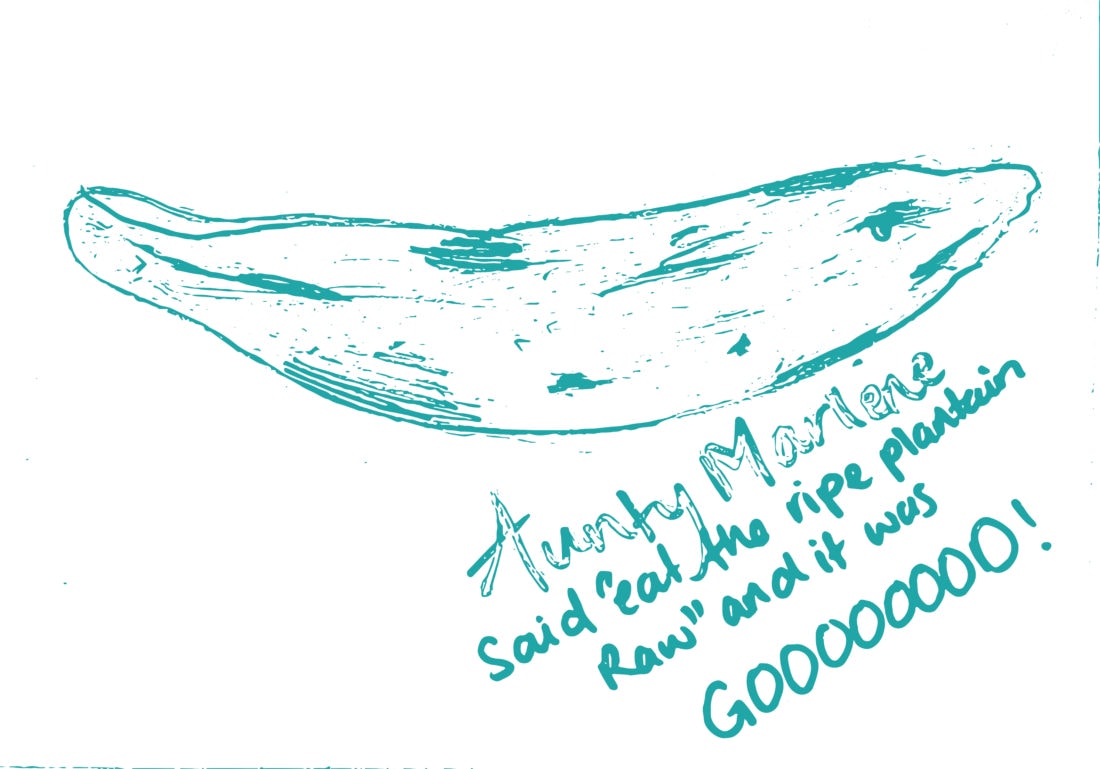
Seyi Adelekun: Cyanotype Printing at the Summer Party
On the final day of the garden, Seyi hosted a summer party! We played music while Seyi led a cyanotype printing workshop. Cyanotype printing is a camera-less technique. Participants laid foraged flowers, grasses and leaves flat onto a bandanas coated with a mixture of iron compounds that react when exposed to UV light. The objects create beautiful white silhouettes of their floral arrangement against a vivid blue coloured background.
We had food provided by Plantain Kitchen including jollof rice, fried plantain and puff puff.
Residents were also able to harvest chard, mallow and callaloo which had grown fast in the hot weather. Vegetables like tomatoes, Sikkim cucumbers, corn and chillies still needed time to develop so the plants were left a little longer and harvested when ready.
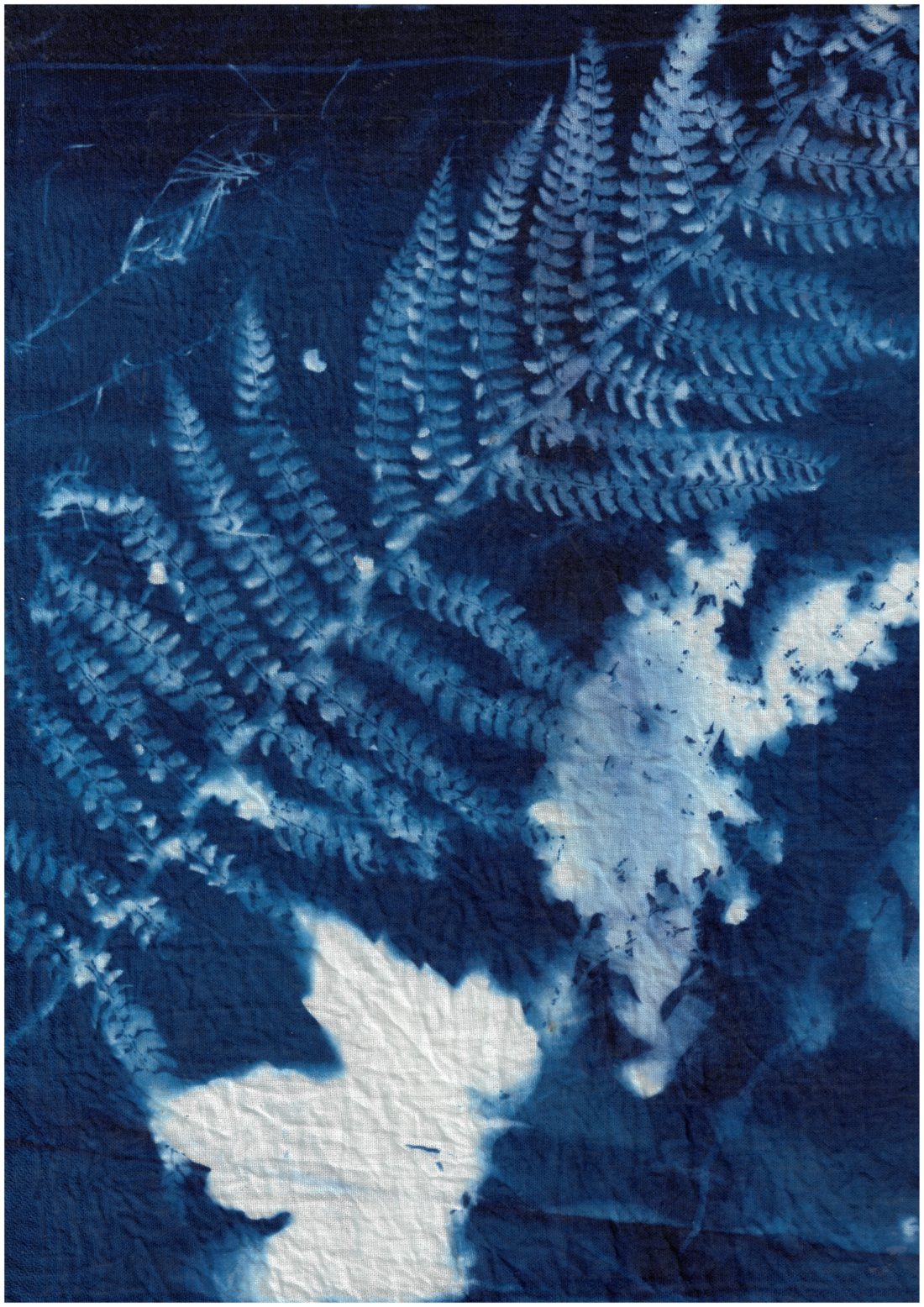
The Diaspora Gardens was created as part of our Residents’ Programme, Open Plan. This programme works with and for the South London Gallery’s close neighbours who live on Elmington, Pelican and Sceaux Gardens estates, to deliver a long-term public art and learning project.
Explore previous Open Plan commissions and find out more about Seyi Adelekun’s project.
Our Resident’s Programme, Open Plan, is supported by Freelands Foundation, with additional funds from other donors.